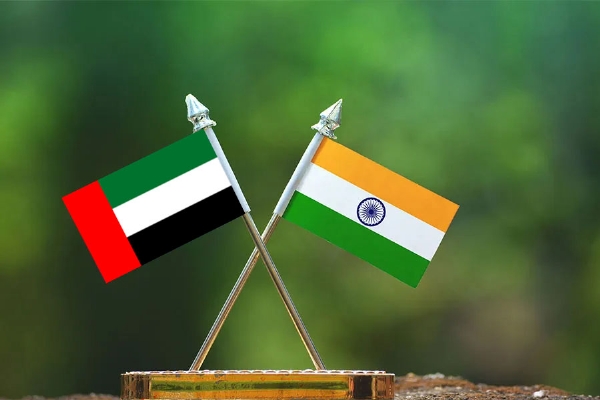India-UAE trade pact finalized, awaiting final NOD
Total Views |
Dubai, Feb 11: Negotiators from the United Arab Emirates (UAE) and India finalized the draft of a comprehensive economic partnership agreement (CEPA) in December and the two sides are waiting for a final signal from their leadership to sign the trade pact, UAE ambassador Ahmed AlBanna said on Thursday.

The trade agreement with the UAE is one of several that India is negotiating with countries such as Australia, the UK, and Taiwan.
New Delhi and Abu Dhabi reportedly committed themselves to conclude the negotiations by March this year.
“We started the actual negotiations in October [2021] and by end-December, our team of negotiators, both from the UAE side and the Indian side, had finalized the agreement and agreed on all the elements of the agreement,” AlBanna said while participating in a virtual interaction organized by Ananta Aspen Centre.
“What we are planning is very soon it will be signed and it will be implemented...we are just waiting for the final [signal from the] leadership from both sides to conclude and sign the agreement,” he said. The CEPA, he added, will “unleash the golden era in our bilateral partnership”.
Albania noted that negotiating a major trade agreement usually takes countries at least a year or two. “We concluded a CEPA agreement with India in less than four months. That shows the immense interest from both sides [in] trying to reach a final agreement which will benefit the economies of the UAE and India in many different sectors,” he said.
The CEPA, he said, will have a positive impact on unemployment, trade, investment, manufacturing, and services. “It will create a corridor...for India in the UAE and for the UAE in India,” he added.
Albania made a strong case for renegotiating the existing India-UAE air services agreement, especially to facilitate the travel of the 3.4 million Indians who live in the emirates. He noted that “certain restrictions” imposed on air travel are affecting them and are “unacceptable”.
Even the current air bubble arrangement between India and the UAE has opened up capacities “only up to the level of what Indian carriers carry one way from India to the UAE”, he said. This, he pointed out, makes no sense to the UAE carriers. With demand being high and the number of seats limited, airfares were high, he said.
The air services agreement, AlBanna said, was “suffering” even before the Covid-19 pandemic, and the UAE’s calls to renegotiate the pact had “never received a positive response” from the Indian side.
Albanna said the India-UAE partnership strengthened during the pandemic, and the emirates were looking to key partners such as India to help make a transition to sustainable development. He identified defense, security, cyber-security, food security, healthcare, and AI as new strategic sectors for cooperation with India.